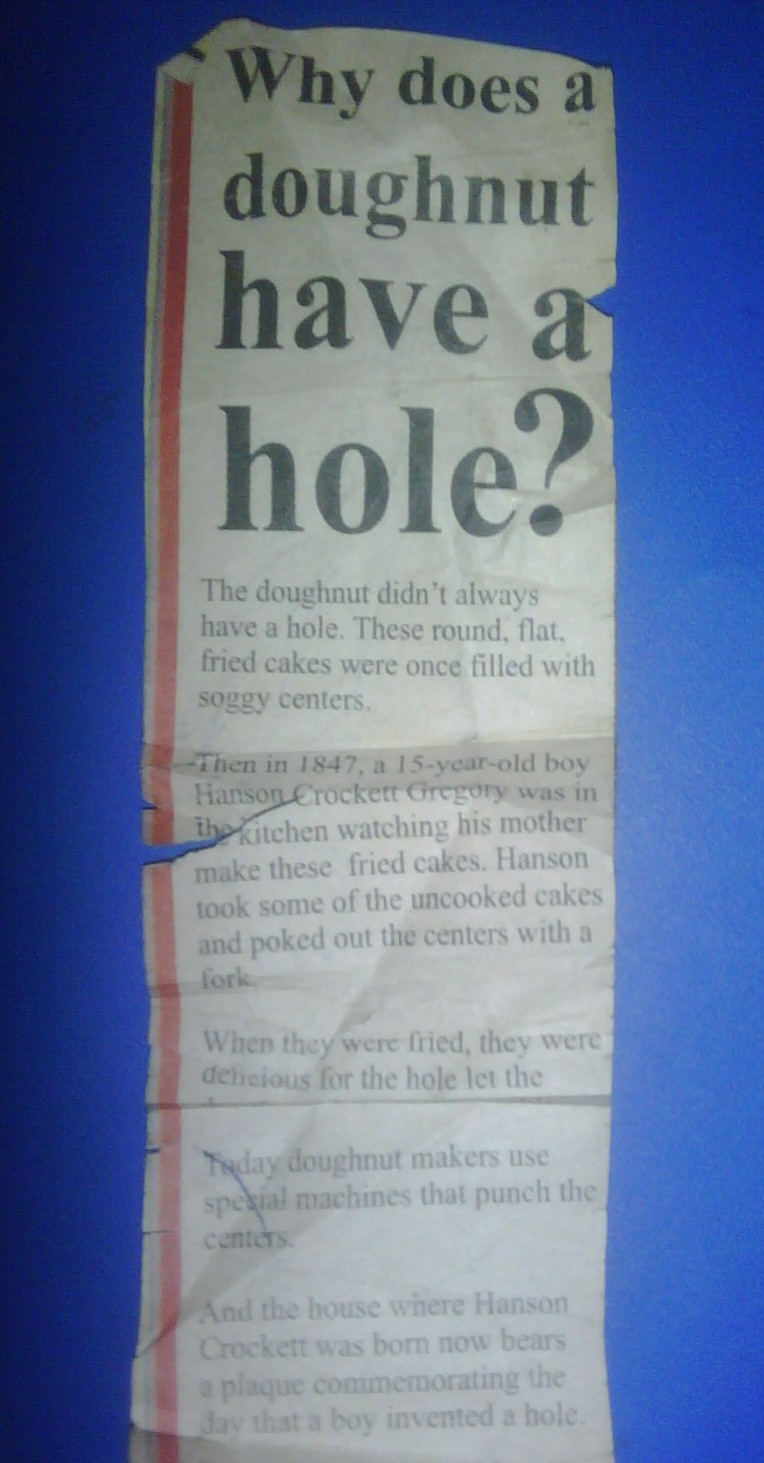We love eating doughnuts: they are delicious! But how many of us know that the first doughnuts (made “waaaay” back in the mid 1800s) NEVER had holes in them…and that they ended up not cooking thoroughly, and were NOT so tasty, as a result??
Do YOU know why doughnuts have holes in them? If no, this article will interest you – not just because it gives THE answer to that question, but also because the story behind it offers a parenting lesson you may find useful.
Image credit: Wired
History credits a teenage boy – Hanson Crockett Gregory – with “inventing” the hole we associate with doughnuts today, back in 1847.
Below is a short version of the story from an old newspaper clipping I cut out over a decade ago [It ends with a URL to a more detailed online source that confirms the story.]
****STARTS****
Why does a Doughnut Have a Hole?
The dougnut didn’t always have a hole. These round, flat, fried cakes were once filled with soggy centers.
Then, in 1847, a 15 year old boy – Hanson Crockett Gregory – was in the kitchen watching his mother make these fried cakes. Hanson took some of the uncooked cakes and poked out the centers with a fork.
When they were friend, they were delicious for the hole let the dough cook more thoroughly.
Today, doughnut makers use special machines that punch the centers.
And the house where Hanson was born now bears a plaque commemorating the day that a boy invented a hole.
****ENDS*****
Click to learn more about the doughnut history, as it relates to Hanson Crockett Gregory’s contribution .
[Read also https://en.wikipedia.org/wiki/Doughnut]
How do you relate with your kids when they come around you as you carry out your tasks?
In Gregory’s case, he was “watching” his mother make the cakes in the kitchen.
But many parents in this part of the world, do not not really think to let their kids come around so much. Indeed in some homes, where parents have the means, the domestic servants do virtually everything, so that the children in the home end up not having to be involved at all, in doing stuff!
Based on my personal experiences as a parent, I argue that letting your kids get involved as much as possibel can do wonders for their self-awareneds and confidnce.
That is in addition to periodic benefits to YOU, when they may come up with, or stumble on creative improvements you may find useful to adopt.
For instance, I once taught my kids to bake my no-oven, charcoal stove baked cakes in September 2013, when I came down from Cotonou to see them in Lagos.
Today, they’ve come up with several creative modifications to the procedure I taught them, that has led to a much better product that what I began with.
The same thing has happened with their mother, as they have helped her in the home.
If you don’t already do it, Hanson Crockett Gregory’s story should inspire you to let your child get more involved in doing what you do
At least at a level where s/he can cause minimal permanent damage if anythign goes wrong.
The benefits to be had, are multiple, for the child, and you…and judging from Hanson Crockett Gregory’s example, even the larger society as well!
Yes. I mean your workplace. Every now and then in paid employment, workers find themselves having to bring their kids to the workplace, due to peculiar circumstances.
In most cases there wil be a need to try keeping the child from making a mess or creating a disturbance.











Warning: count(): Parameter must be an array or an object that implements Countable in /home1/tayoswdg/public_html/sdnuggets/wp-includes/class-wp-comment-query.php on line 399